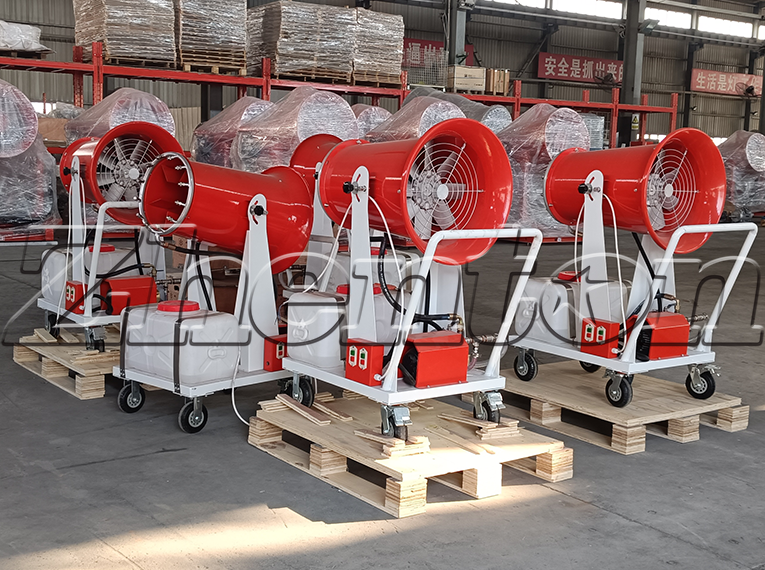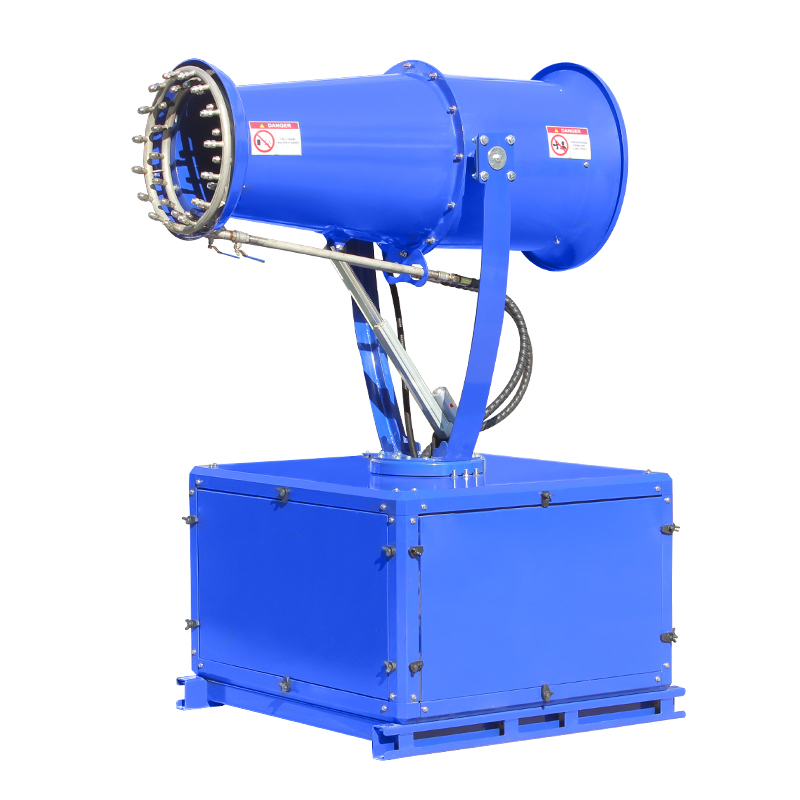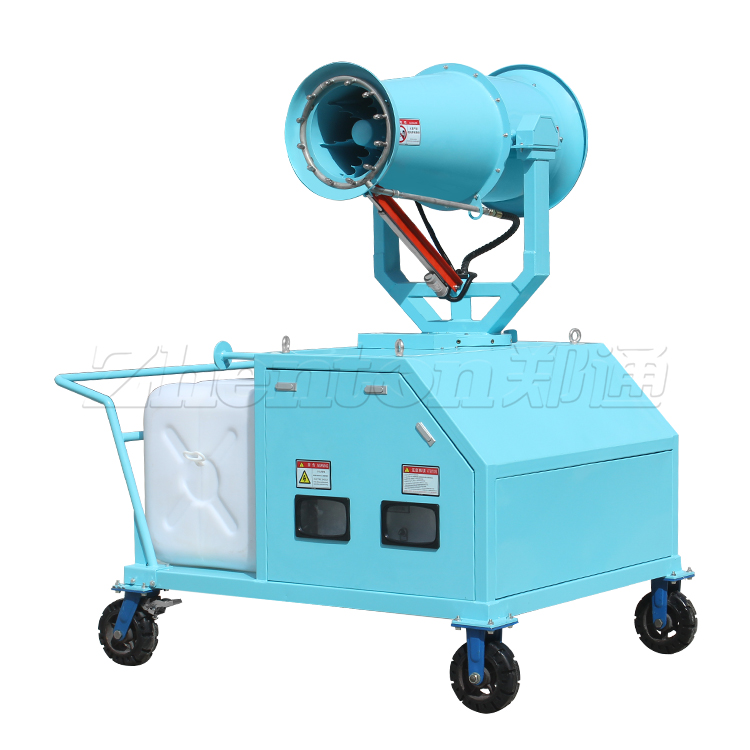Fog cannon is through high-pressure atomisation technology will be converted into water or pharmaceuticals into tiny particles, in an efficient and uniform manner sprayed into the air or target surface. In the pest control and irrigation fertilization for modern agriculture is one of the indispensable tools, the following Zheng Tong fog cannon editor will take you three minutes to understand the main role of the fog cannon in the field of agriculture it!
1.Fest control
Disease control: fog cannon can spray pesticides such as insecticides, fungicides and herbicides to the surface of the crop, forming an effective protective layer to prevent pathogens and pests. This efficient spraying not only improves the efficiency of the chemicals used, but also reduces crop losses.
Emergency treatment: In the event of a pest outbreak, the fog cannon can quickly cover the affected area and control the spread of the pest in a timely manner. For example, in forest pest control, the fog cannon can quickly inhibit the spread of pests and diseases by precisely controlling the spray range and density.
2.Irrigation and fertilisation
Precise fertiliser application: fog cannon is used for liquid fertiliser spraying, which can achieve precise fertiliser application and ensure that crops get balanced nutrition. Through fogging technology, the fertiliser covers the crop in a more uniform and efficient way, thus improving the fertiliser application effect.
Water-saving irrigation: The fog cannon's fogging irrigation technology can drastically reduce water consumption. Compared to traditional surface irrigation systems, fog cannons atomise water directly to the crop roots, reducing water evaporation and seepage. This approach not only improves water use efficiency, but also helps agricultural development in arid areas.
3.Growth regulation
Promote growth: fog cannons are capable of spraying plant growth regulators, chemicals that can affect the growth process of crops, such as speeding up or slowing down growth, promoting branching and flowering. By precisely controlling the dosage and spraying time, fog cannons help farmers better manage the growth status of their crops.
Improve photosynthesis: By increasing air humidity, fog cannons help keep crop leaves moist for better photosynthesis. This microclimate regulation function plays an important role in improving crop yield and quality.
4.Soil improvement
Adjustment of pH: The fog cannon can spray lime sulphur and other substances for adjusting the pH of the soil and improving soil fertility. This precise spraying avoids the problem of uneven manual application of fertiliser and ensures that the effect of soil improver is maximised.
Treatment of saline land: In saline areas, fog cannons can effectively spray amendments such as gypsum and acidic fertilisers to mitigate the effects of soil salinisation. This kind of treatment is both environmentally friendly and efficient, providing technical support for the agricultural use of saline and alkaline land.
5.Other Applications
Killing weeds: The fog cannon can be used to spray herbicides to effectively manage weeds in the field. Its high-pressure atomisation capability ensures uniform distribution of herbicides, avoiding damage to major crops, while reducing chemical dosage and protecting the ecological environment.
Fruit and vegetable preservation: in post-harvest treatment, the fog cannon can also be used to spray preservatives to extend the freshness of fruits and vegetables. This type of spraying is simple, efficient and can significantly reduce losses due to decay.
Fog cannon in the field of agriculture is widely used and diversified, covering pest control, irrigation and fertilisation, growth regulation, soil improvement and other aspects of modern agriculture to do out a great contribution.













